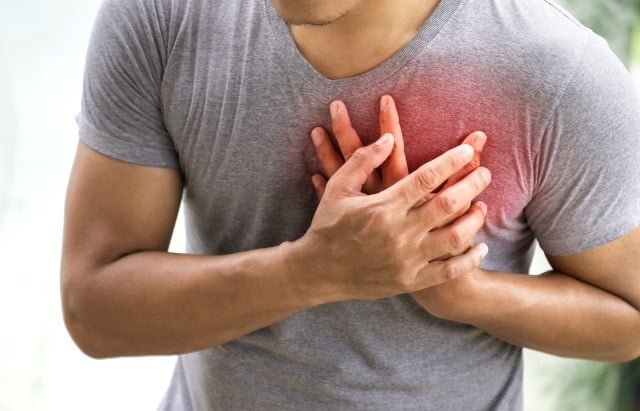Heart attacks are a typical cause of health emergencies worldwide. They occur when blood flow to the heart is blocked, leading to tissue damage. One sign is chest pain, but not all chest discomfort indicates a heart problem. Knowing when this symptom signals a heart attack could save lives. Here is when chest pain could indicate a heart attack:
How Does Chest Pain Feel?
Chest pain tied to a heart attack may feel different from other types of discomfort. You might experience a squeezing sensation rather than sharp or sudden pain. The discomfort could last several minutes or come and go. The sensation might also radiate beyond the chest. It could affect your arms, back, neck, jaw, or stomach.
When Should You React Fast?
Immediate action is necessary when chest pain is unusual, severe, or lasts longer than a few minutes. If the discomfort feels heavy, pressing, or painful on the chest, it could indicate a blockage in the heart’s blood vessels. Other warning signs might accompany this pain and influence your response.
What Are Typical Heart Myths?
Many assume that heart attack pain is always intense or on the left side. This isn’t always true. Sometimes, people describe the sensation as mild, vague, or like indigestion. Others think they must feel pain only in their chest, ignoring aches in their back, jaw, or other areas.
Is It Like Other Pain?
Not all chest pain is linked to the heart; some issues stem from muscles, lungs, or digestive problems. Sharp or stabbing pains often result from muscle strain or pleurisy, an inflammation of lung tissues. Heartburn frequently mimics the burning sensation of cardiac-related pain, but it typically starts higher in the throat or stomach.
If physical movement or breathing worsens the pain, it’s likely unrelated to the heart. Similarly, pain lasting only a second or two isn’t generally tied to a heart attack. Recognizing these details helps identify which pain requires medical attention.
What Steps Should You Take?
If you or someone else might be having a heart attack, quick intervention is needed. Here is what to do next:
- Call for help immediately – Dial your local emergency number and describe all symptoms clearly.
- Stay calm and seated – Keep yourself or the other person as still as possible to prevent straining the heart further.
- Chew an aspirin – This thins the blood and may help reduce damage to the heart while waiting for professionals to arrive.
Reaching medical care promptly improves survival rates, so never hesitate to act if you suspect a problem.
How Can You Lower Risks?
Reducing the chance of heart attacks starts with everyday choices. Here are a few actionable tips to maintain heart health:
- Prioritize a balanced diet filled with whole grains, lean proteins, and vegetables.
- Engage in moderate physical activity several times each week.
- Quit smoking, as it contributes to arterial damage and blood clots.
- Know your numbers, like cholesterol and blood pressure, which help identify areas to manage.
By adopting healthier habits, you not only lower your risks but also improve overall well-being. For those already managing heart disease or related conditions, regular checkups with your doctor provide added protection.
Get Help for Chest Pain
Chest pain should never be ignored. Although not all causes are severe, understanding when the symptom signals a heart attack is fundamental in protecting yourself and your loved ones. When in doubt, act quickly, as it is always better to speak to a medical professional than to take a chance.
- The Connection Between Arthritis and Chronic Pain Management
- The Role of Internal Medicine in Managing Diabetes
- The Diverse Specializations Within Ophthalmologists and Their Impact on Eye Health
- Exploring the Role of Sports Medicine in Injury Prevention
- Understanding the Different Types of Hernias and Their Symptoms

